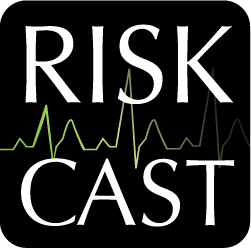European winter. Airline security. The asteroid apocalypse.
These were the topics of the discussion when us editors of Risk Managment got together to record this fourth installment of the RiskCast for your listening pleasure. Those of you who listen to the whole thing will get to hear a candid conversation about our biggest fears. Morgan’s are particularly scary.
Enjoy.
And remember, you can also subscribe to the RiskCast through iTunes by clicking here or searching for “RiskCast” within the iTunes store. Please let us know what you think by ranking us or giving us a review on iTunes.
[gplayer href=”http://www.riskmanagementmonitor.com/wp-content/uploads/riskcast/RiskCast%2004%20-%20SMALL.mp3″]RiskCast: Episode 4[/gplayer]


